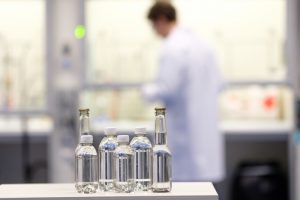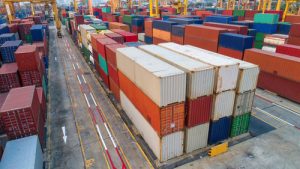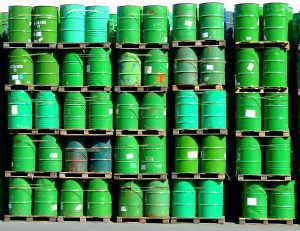Consolidated Container Co, which recently acquired two major suppliers of recycled resins, plans to make structural and personnel changes at the companies. Continue Reading

Consolidated Container Co, which recently acquired two major suppliers of recycled resins, plans to make structural and personnel changes at the companies. Continue Reading
 A bio-derived plastic that could replace PET in food and drink packaging has received interim approval from an industry organization in Europe.
A bio-derived plastic that could replace PET in food and drink packaging has received interim approval from an industry organization in Europe.
 Through its use of a catalyst in a patented process, a Canadian company is recycling PE and PP into a variety of industrial waxes.
Through its use of a catalyst in a patented process, a Canadian company is recycling PE and PP into a variety of industrial waxes.
 China’s three-month-old import action has stalled shipments of some recovered plastics from the U.S. and led to substantial import fee increases.
China’s three-month-old import action has stalled shipments of some recovered plastics from the U.S. and led to substantial import fee increases.
 Ikea buys a stake in a plastics recycling company, and a proposed plastics tax angers industry associations in Southeast Asia.
Ikea buys a stake in a plastics recycling company, and a proposed plastics tax angers industry associations in Southeast Asia.
 A government insider says a U.K. bottle deposit is unlikely, and designers find a creative way to utilize discarded plastic bottles.
A government insider says a U.K. bottle deposit is unlikely, and designers find a creative way to utilize discarded plastic bottles.
 Converting used plastics into ultra-low-sulphur diesel fuel yields notable environmental benefits over traditional oil drilling and refining processes, according to a U.S. lab.
Converting used plastics into ultra-low-sulphur diesel fuel yields notable environmental benefits over traditional oil drilling and refining processes, according to a U.S. lab.
 Nestle Waters North America will invest $6 million into the Closed Loop Fund, adding to the pool of money used to finance recycling infrastructure projects nationwide.
Nestle Waters North America will invest $6 million into the Closed Loop Fund, adding to the pool of money used to finance recycling infrastructure projects nationwide.
 Pharmacies are encouraged to take advantage of a clean HDPE feedstock, and prize money is put up for packaging innovations.
Pharmacies are encouraged to take advantage of a clean HDPE feedstock, and prize money is put up for packaging innovations.
 Plentiful supply of curbside HDPE bales in the Southeast and U.S. Gulf Coast area pushed prices lower in mid-May as suppliers sought to move their rising inventories.
Plentiful supply of curbside HDPE bales in the Southeast and U.S. Gulf Coast area pushed prices lower in mid-May as suppliers sought to move their rising inventories.
